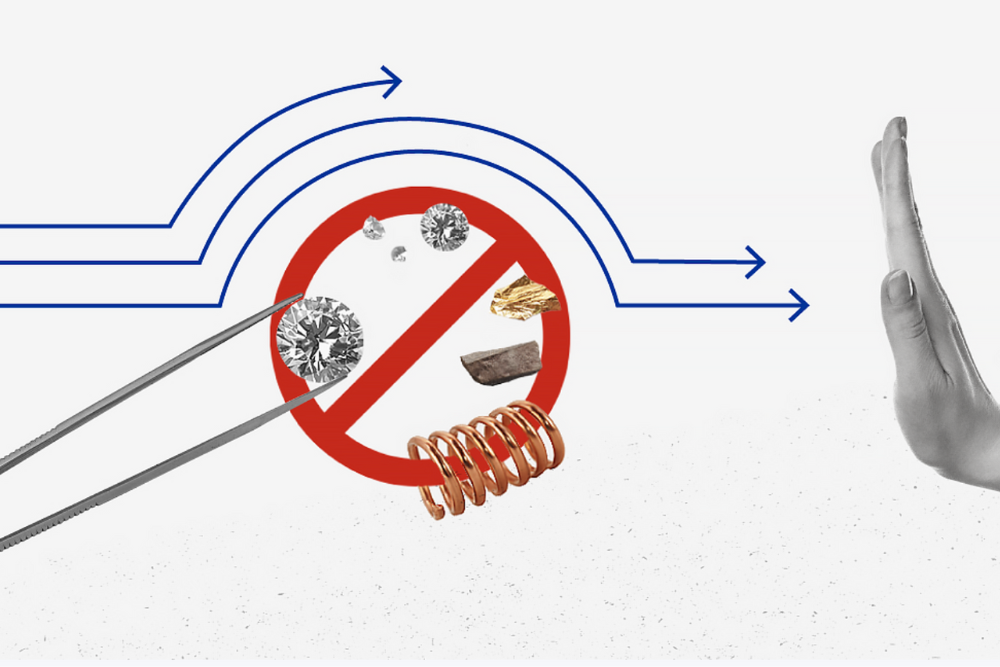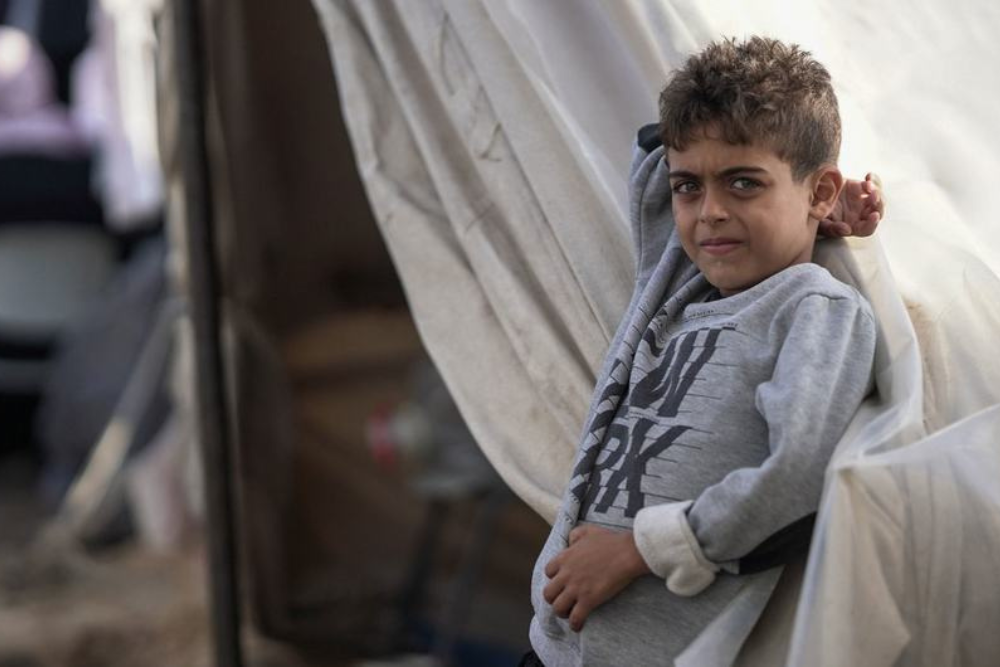Briefing the Security Council, Sima Bahous, Catherine Russell and Natalia Kanem – heads of UN Entity for Gender Equality and the Empowerment of Women (UN Women), UN Children’s Fund (UNICEF) and UN Population Fund (UNFPA), respectively – also welcomed the agreement on the release of some of the hostages taken during the Hamas attack on Israel and emphasized the need for a lasting truce.
They also stressed the importance of Security Council resolution 2712 that was adopted last week and calls for urgent and extended humanitarian pauses and corridors throughout Gaza to save and protect civilian lives.
‘They continue caring’: UN Women head
Speaking first, Ms. Bahous highlighted the intensity of violence in Gaza and the devastating impact on its population, in particular women and girls, who are estimated to account for 67 per cent of the 14,000 fatalities in the enclave.
She also expressed deep concern for pregnant women and those who delivered babies without medical supplies, painkillers, anaesthesia for C-sections, or water.
“Yet, they continue caring for their children, the sick, the elderly, mixing baby formula with contaminated water, going without food so that their children can live another day, enduring multiple risks in severely overcrowded shelters,” she said.
Working under severe constraints
Ms. Bahous said that Gaza’s only two women’s shelters are now closed but women-led organizations continue to operate there, though under severe constraints, using their networks to source and distribute emergency items and to document and respond to protection concerns.
In her briefing, the head of UN Women also spoke of an escalation in the West Bank, where demolitions of public infrastructure, revocation of work permits, increased settler violence, and detentions have “significantly impacted” the lives and livelihoods of women.
She also said that UN Women met with Israeli women who shared their work in documenting gender-based atrocities, as well as sharing their hope for peace, with women – both Israeli and Palestinian – at the table.
Most dangerous place to be a child: UNICEF chief
Catherine Russell, Executive Director of UNICEF, highlighted the severe impact of the crisis on children and noted that over 5,300 Palestinian children have been reported killed in 46 days, accounting for 40 per cent of deaths in the enclave.
“This is unprecedented. In other words, the Gaza Strip is the most dangerous place in the world to be a child,” she said.
She added that the children who survive the war are likely to see their lives irrevocably altered through repeated exposure to traumatic events.
“The violence and upheaval around them can induce toxic stress that interferes with their physical and cognitive development,” she said, noting also that one million children – or all children inside the territory – are now food insecure, “facing what could soon become a catastrophic nutrition crisis.”
True cost measured in children’s lives
Ms. Russell also emphasized that the “true cost” of the war will be measured in children’s lives: those lost to the violence and those forever changed by it.
“Without an end to the fighting and full humanitarian access, the cost will continue to grow exponentially,” she said, adding that the destruction of Gaza and killing of civilians will not bring peace or safety to the region.
“The people of this region deserve peace. Only a negotiated political solution – one that prioritizes the rights and wellbeing of this and future generations of Israeli and Palestinian children – can ensure that,” she said.
Joy overshadowed by death, destruction: UNFPA head
Also briefing, Ms. Kanem outlined the challenges in Gaza, emphasizing the critical lack of healthcare, with hospitals shutting down, leaving thousands of pregnant women and those who delivered recently at risk.
“At a moment when new life is beginning, what should be a moment of joy is overshadowed by death and destruction, horror and fear. The situation is most dire for women facing obstetric complications – some 15 per cent of pregnant women,” she said.
“Their lives are at risk due to severely limited access to healthcare and emergency obstetric care,” she added.
Ms. Kanem also voiced deep concern over lack of clean water and sanitation, which creates multiple health risks, including for women who have no access to menstrual hygiene.
Lack of food and water across Gaza will have adverse impacts on the health and wellbeing of pregnant and breastfeeding women who have higher daily water and caloric intake requirements, she said.
An urgent test of humanity
The head of UNFPA underscored the need for protection of humanitarian workers in Gaza, “who risk their lives in the service of others”, and mourned the loss of over 100 staff members of the UN agency assisting Palestine refugees (UNRWA), and scores of aid workers killed in the conflict.
In conclusion, she emphasized that the fate of humanity does not belong in the hands of those wielding weapons, “it rests with women and young people and allies standing together waging peace.”
“In this urgent test of humanity, women and girls desperately need peace to prevail. I call upon the Security Council to do everything in your power to make that peace happen,” she said.
Security Council meeting on the situation in the Middle East, including the Palestinian question.













